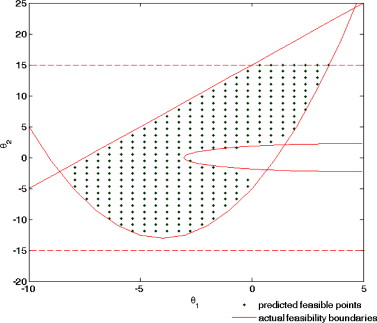Data-driven Process Systems Engineering Lab
Feasibility analysis of black-box processes using an adaptive sampling kriging-based method
Computers & Chemical Engineering 2012

This paper presents a new approach for performing feasibility analysis over a multivariate factor space when the explicit form of a process model is lacking or when its evaluation is expensive. Specifically, two issues are addressed: feasibility evaluation of black-box processes using Kriging and development of an adaptive sampling strategy in order to minimize sampling cost, while maintaining feasibility space accuracy. Kriging is chosen as the interpolating technique for constructing a response surface of the feasibility function as a function of the uncertain parameters when a set of input–output data are available. The adaptive sampling strategy identifies critical regions and directs the search towards feasibility boundaries or where the Kriging prediction uncertainty is high. The average Kriging prediction error and cross-validation methods are used to validate the robustness of the produced model of the initial experimental design which is found to highly affect the final predicted feasible region.
Link to Publication